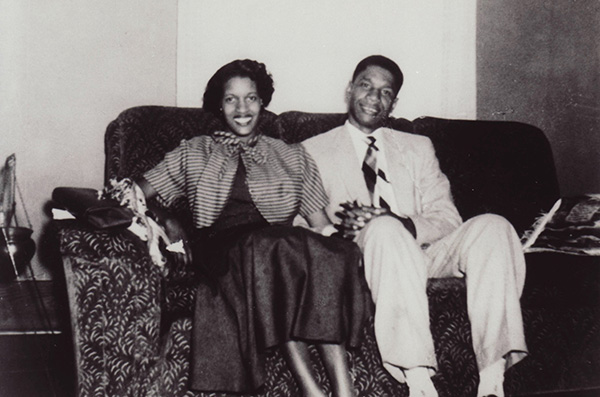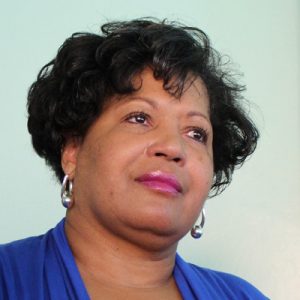The events surrounding the senseless, unjust, televised killing of George Floyd in Minneapolis on May 25 have become far too familiar and frequent, but are always difficult to accept. The manner of his death has released torrents of anger and sorrow throughout my soul and across the world. The modern-day lynchings of Breonna Taylor in March and Ahmaud Arbery in February have frozen and virtually traumatized me. Like Mr. Floyd, both were killed in situations that are hard to grasp, one in her home and the other while jogging in his neighborhood.
As the daughter of Civil Rights leaders Medgar and Myrlie Evers, I feel their family’s pain. I have walked their journey of despair, cried tortured tears and praying to the heavens above for humanity to become human. Although it was 57 years ago today when my father died at our home in Jackson, the memories never fade. I can remember all too well as my loved one, my father Medgar Evers, was shot in the back as he exited his car in our driveway.
“Freedom has never been Free.”
– Medgar Evers
What these tragedies have in common is that all the victims were black; they were at home or in a community that was near and dear to them. These episodes continue to expose the deep-seeded hatred and racism that plague our nation, provides privileges to some, and denies the same privileges and standards to others, based purely on the color of their skin. It is a double standard that all people of color face, and a standard that I am reminded of daily.
My colleagues who are not African American cannot completely understand the African American lived experience in this country. This inequitable system of double standards is so pervasive that I feel that we are stuck in time, more than 57 years ago during the time my father alongside other soldiers for equity worked to overturn segregation at the University of Mississippi, end the segregation of public facilities and expand opportunities for African Americans, which included the enforcement of voting rights.
Dad’s words on May 18, 1958, still hold true today: “I have been told that ‘resistance to tyranny is obedience to God,’ and for that reason if for no other we shall not cease to press forward, relentlessly, until every vestige of segregation and discrimination in America becomes annihilated.”

As I watched the events in Minneapolis unfold, I struggled for words to help my anguish. How many times must we mourn another black person who died doing everyday tasks? I can recall my father’s appeal to the consciences of many silent, responsible citizens of the white community who knew that a victory for democracy in Jackson would be a victory for democracy everywhere.
At the Medgar and Myrlie Evers Institute, we are not only hopeful but working for that change to come. We stand in solidarity with the Floyd family and all the families whose loved ones were killed because of the color of their skin. It took us over 30 years to get justice for my father, and we will stand with the protesters to continue the hard work of dismantling the structural barriers to equality, justice and peace as long as it takes.
We believe these events serve as a call to action for the world—to advance our work in eliminating disparities and to continually reinforce an inclusive multicultural generation in which every one of us feels safe, empowered and truly free. Our mission to serve the needs of all, without bias, hatred, racism or discrimination, has never been more important.
It truly is time to define our core beliefs while unifying humanity with dignity and respect in all areas of life. The movement for concrete steps to positive social change is once again upon our nation.
The Medgar Evers family and the Medgar and Myrlie Evers Institute send heartfelt prayers of healing to the families of these senseless and tragic acts of violence.
As my mother Myrlie Evers said in 1963, “You can kill a man, but you can’t kill an idea.”
This MFP Voices essay does not necessarily represent the views of the Mississippi Free Press, its staff or board members. To submit an essay for the MFP Voices section, send up to 1,200 words and factcheck information to donna@mississippifreepress.com. We welcome a wide variety of viewpoints.






